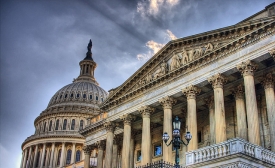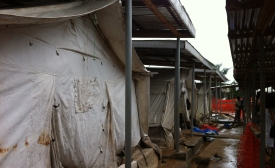voice of america

A collection of CPD blogs and articles exploring the fate of VOA and U.S. International Broadcasting as a whole.

Former VOA senior advisor extends William Burns' parting thoughts for diplomats to USIB
BBG Watch claimed that senior managers at BBG and VOA “stealthily cut 14 repeat hours of satellite TV news programming weekly to China in the middle of the Hong Kong-China crisis,” and moved some VOA Chinese TV broadcasts to “less desirable time slots” without alerting VOA’s China Branch staff.

Former VOA Deputy Director on how international broadcasters can stem the tide of Ebola.
U.S. Under Secretary of State for Public Diplomacy and Public Affairs Richard Stengel says that in the face of strong foreign propaganda machines such as Russia and the Islamic State, the U.S. needs to harden its "soft power" with its own participation in the global conversation.
As announced by President Barack Obama and welcomed by Liberian Defense Minister, soldiers from the United States army are expected in the country to provide expertise in the fight against the Ebola virus. Appearing Sunday on NBC's Meet the Press television program, Obama said U.S. military assets are needed to set up isolation units and equipment and provide security for international health workers.
Recently, there has been a great deal of debate, and no small amount of axe grinding, regarding the mission and the effectiveness of U.S. international broadcasting under the Broadcasting Board of Governors.
The United States International Communications Reform Act of 2014 (HR4490), passed July 28, 2014 on a voice vote in the House of Representatives, was born out of frustration and desperation – frustration over ways to counter foreign propaganda and desperation to streamline what has become an unwieldy, inefficient, poorly managed and less than effective international broadcast conglomerate.







